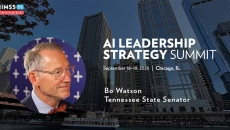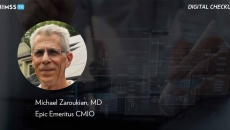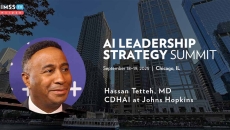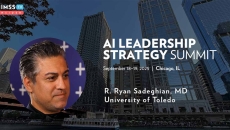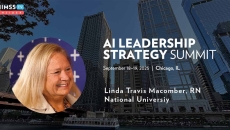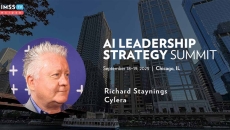HIMSS TV
AI systems demand massive energy infrastructure, and Tennessee State Sen. Bo Watson says his state has allocated $60 million to develop alternative energy sources to help meet AI's power needs.
Epic Emeritus CMIO Dr. Michael Zaroukian says health system leaders can add to their EHRs' value after the initial go-live by linking it to strategic goals, empowering clinicians to share feedback and prioritizing usability.
Martin Gaynor, professor emeritus at Carnegie Mellon University, discusses a study on obstetric care changes after mergers with larger systems that may be farther away but can offer more specialized care.
Julie Frey, VP of product at Wolters Kluwer Health, discusses how the company's clinical decision support tool, which combines trusted evidence with generative AI, fits into clinical workflows and augments physicians' judgment.
Dr. Hassan Tetteh of the Johns Hopkins Center for Digital Health and AI says that agentic AI has the potential to surpass human intelligence and change the way we work, but can also enable personalized, more patient-driven healthcare.
According to Dr. R. Ryan Sadeghian, healthcare AI thrives best on small, steady successes in areas like ambient documentation where clinician trust and workflow fit matter more than having the latest model.
As post-acute facilities struggle with fragmentation and staffing, PointClickCare's Dr. Steve Buslovich says AI tools can summarize complex patient records and assist with documentation so clinicians can focus on bedside care.
HIMSS Life Fellow and National University professor Linda Travis Macomber, RN, talks about her career in AI and how data continuity, AI-powered decision support and virtual care can drive the next wave of healthcare transformation.
Elsa, the FDA's new AI tool, promises to speed up safety reviews. ConcertAI's Jeff Elton advises developers to anticipate its insights and optimize interactions by preparing structured, contextualized data.
AI is transforming care and improving outcomes, but Richard Staynings, chief security strategist at Cylera, says that, without clear governance and federal guidance, cybersecurity, privacy and patient safety may be at risk.

